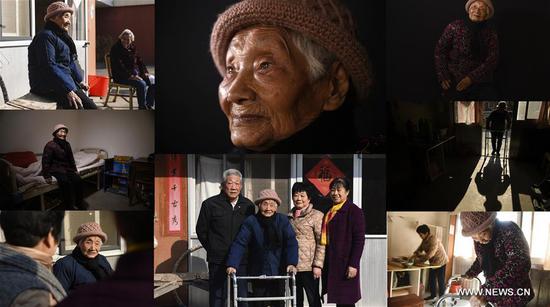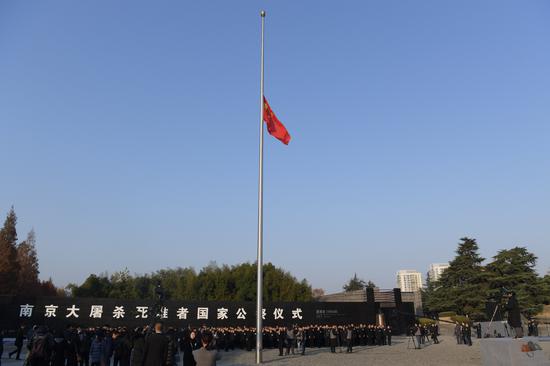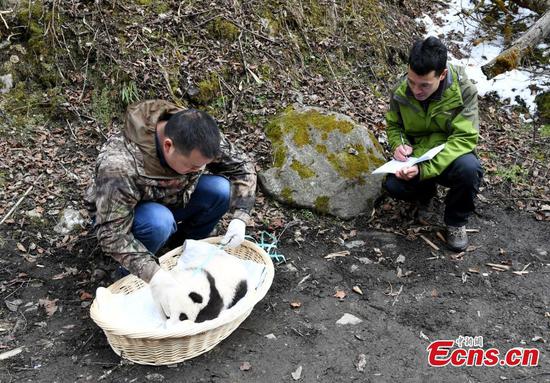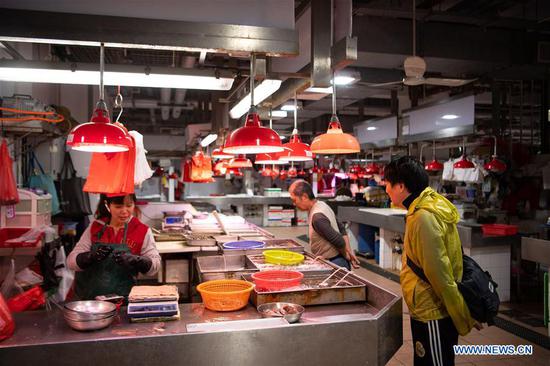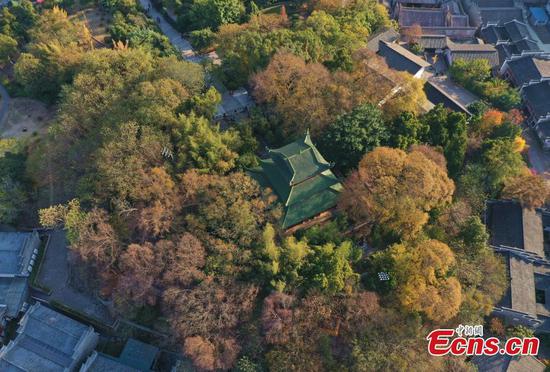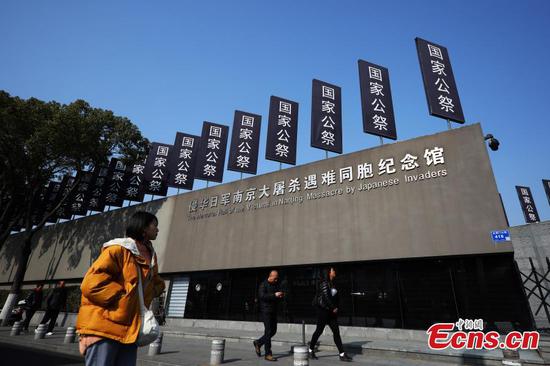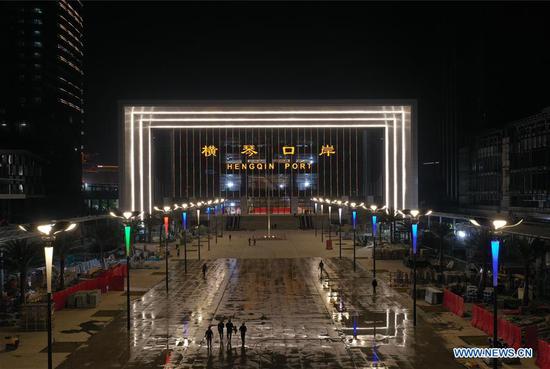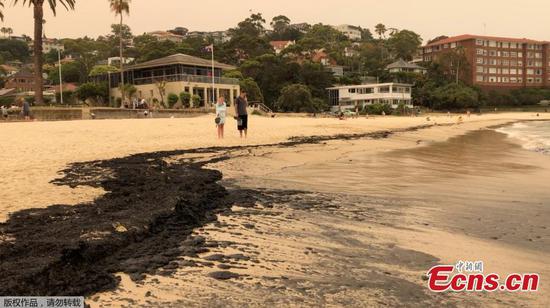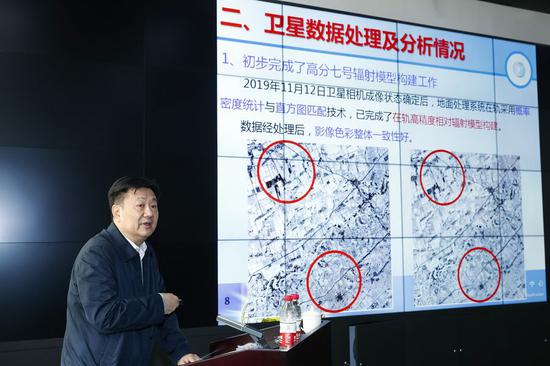
A saleswoman (center) talks with customers at a real estate sales office in Huai'an, Jiangsu province. (Photo by Zhou Changguo/China News Service)
The annual Central Economic Work Conference, which ended on Thursday, has set the tone for the real estate market for the coming year, stressing the need to stabilize land and home prices as well as market expectations to ensure the steady and healthy development of the property market, which analysts see as a signal that China's economy will further trim its heavy reliance on property.
"To make sure the property market develops steadily and healthily, we must uphold the principle that 'housing is for living in, not speculation', and implement policies in accordance with each city's requirements whilst the long-term mechanism for stabilizing land prices, home prices and market expectations is being created," noted the Central Economic Work Conference.
Despite slower economic growth, the central authorities reaffirmed that property speculation will be strictly controlled, leaving little room to maneuver for local policies to make any adjustment in this regard, said Yan Yuejin, research director at the EHouse China R&D Institute.
Since the Central Economic Work Conference held in 2016 raised the principle that housing is for living in, not speculation, the country has reiterated the principle, especially during the second half of this year, when several local governments relaxed their restrictions on home purchases.
More than 20 cities announced measures to attract talents in November alone, including Foshan and Zhongshan in Guangdong province, Nanjing in Jiangsu province, Chengdu in Sichuan province, and Shanghai, which have all lowered requirements for talents buying homes, with some of them even offering special subsidies, according to a research report by Centaline Property.
The ban on property speculation has signaled that home prices will remain stable, and measures will be rolled out to address market fluctuations.
The relaxations on first-time buyers and high-end talents purchasing homes are only allowed within particular regions, as the country has no intention of comprehensively relaxing property policies, said Wang Tao, chief China economist with UBS AG.
"Compared to statements from previous years, this year's meeting made it clear that stable home prices will be a priority of any local measures. As such, we will not see continuous house price rises in a single market in the future," said Zhang Bo, chief analyst of Anjuke.
The respective property measures of Chinese cities will further promote stability in the property market, according to a report by the China Real Estate Chamber of Commerce.
"Along with the rising contribution of consumption and emerging economies to GDP, China's economy will hopefully overcome its heavy reliance on real estate and infrastructure for good, which will make the nation's growth and development more resilient," Bian Quanshui, an analyst with Sinolink Securities, wrote in a report.
The Central Economic Work Conference made it clear that work will be focused on increasing supply of homes for low-income workers through renewal and regeneration of existing residential projects and urban communities, and significantly increasing rental housing, according to Xinhua News Agency.












